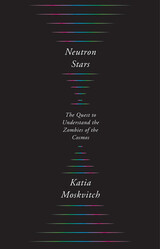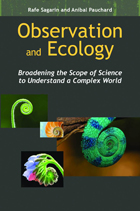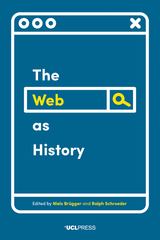
The astonishing science of neutron stars and the stories of the scientists who study them.
Neutron stars are as bewildering as they are elusive. The remnants of exploded stellar giants, they are tiny, merely twenty kilometers across, and incredibly dense. One teaspoon of a neutron star would weigh several million tons. They can spin up to a thousand times per second, they possess the strongest magnetic fields known in nature, and they may be the source of the most powerful explosions in the universe. Through vivid storytelling and on-site reporting from observatories all over the world, Neutron Stars offers an engaging account of these still-mysterious objects.
Award-winning science journalist Katia Moskvitch takes readers from the vast Atacama Desert to the arid plains of South Africa to visit the magnificent radio telescopes and brilliant scientists responsible for our knowledge of neutron stars. She recounts the exhilarating discoveries, frustrating disappointments, and heated controversies of the past several decades and explains cutting-edge research into such phenomena as colliding neutron stars and fast radio bursts: extremely powerful but ultra-short flashes in space that scientists are still struggling to understand. She also shows how neutron stars have advanced our broader understanding of the universe—shedding light on topics such as dark matter, black holes, general relativity, and the origins of heavy elements like gold and platinum—and how we might one day use these cosmic beacons to guide interstellar travel.
With clarity and passion, Moskvitch describes what we are learning at the boundaries of astronomy, where stars have life beyond death.

The need to understand and address large-scale environmental problems that are difficult to study in controlled environments—issues ranging from climate change to overfishing to invasive species—is driving the field of ecology in new and important directions. Observation and Ecology documents that transformation, exploring how scientists and researchers are expanding their methodological toolbox to incorporate an array of new and reexamined observational approaches—from traditional ecological knowledge to animal-borne sensors to genomic and remote-sensing technologies—to track, study, and understand current environmental problems and their implications.
The authors paint a clear picture of what observational approaches to ecology are and where they fit in the context of ecological science. They consider the full range of observational abilities we have available to us and explore the challenges and practical difficulties of using a primarily observational approach to achieve scientific understanding. They also show how observations can be a bridge from ecological science to education, environmental policy, and resource management.
Observations in ecology can play a key role in understanding our changing planet and the consequences of human activities on ecological processes. This book will serve as an important resource for future scientists and conservation leaders who are seeking a more holistic and applicable approach to ecological science.

READERS
Browse our collection.
PUBLISHERS
See BiblioVault's publisher services.
STUDENT SERVICES
Files for college accessibility offices.
UChicago Accessibility Resources
home | accessibility | search | about | contact us
BiblioVault ® 2001 - 2024
The University of Chicago Press









